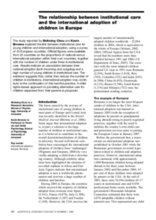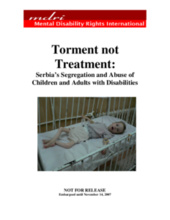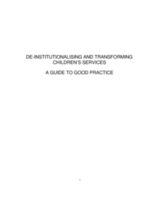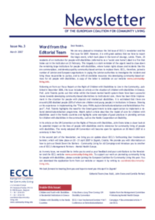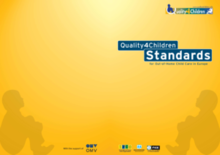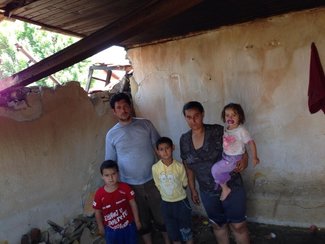

Displaying 511 - 520 of 544
Explores causal relationship between increased international adoption and increase in institutional care of children in Europe.
The study reported by Shihning Chou and Kevin Browne explored the link between institutional care for young children and international adoption, using a survey of 33 European countries. The evidence suggests that, rather than reduce the number of children in institutions, international adoption may contribute to the continuation of this harmful practice. A child rights-based approach to providing alternative care for children separated from their parents is proposed.
The International Foster Care Organisation's European Training Seminar will take place November 18-21, 2007 in Malta. The seminar is aimed at participants from the EU, EEA, CIS, CEE & North Africa, but welcomes people from around the world. It will be followed by the EuroChild annual conference.
This report is the product of an investigation spanning four years by Mental Disability Rights International (MDRI) into the human rights abuses perpetrated against institutionalized children and adults in Serbia. From July 2003 to August 2007, MDRI documented a broad array of human rights violations against people with disabilities, segregated from society and forced to live out their lives in institutions.
A resource site based on the first Regional Consultation on Child Care System Reform held in Sofia in early July. The consultation brought together 120 key social welfare delegates from Albania, Bosnia & Herzegovina, Bulgaria, Croatia, UN-administered Kosovo, FYR Macedonia, Montenegro, Romania, Serbia and Turkey.
A clear, concise, and evidence-based summary of the effects of institutional care on children. Identifies key steps to transforming children's services to promote alternative care. Links to training resources at European Union Daphne Project website.
This document is intended to provide concrete advice on how to put the guiding principles common to most child protection actors into practice. Though cultural traditions and customs may require the advice to be adapted to the specific context, the authors believe that the advice provided is grounded in sufficiently broad experience to guide measures that ensure children under five are not separated when this can be avoided, and, if separated, can be reunited with their families as quickly as possible.
The third newsletter of the European Coalition for Community Living. Articles focus on good practices in providing care for children with disabilities.
A set of standards on the process of a child or young person entering care, being cared for, and leaving care, based primarily on the views of children, families, and caregivers.
Addresses prevention of child maltreatment in the family through a public health approach. Identifies primary, secondary, and tertiary prevention strategies and sets proirities for action.

